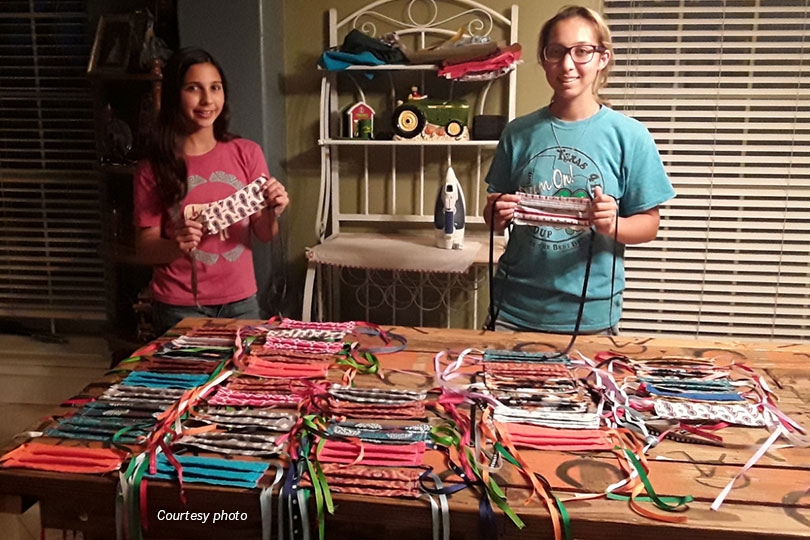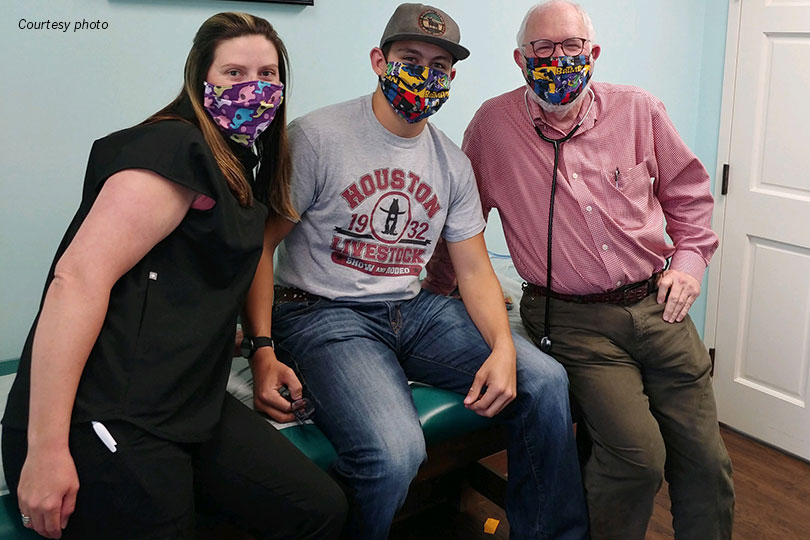By Jennifer Dorsett
Field Editor
Recently, the U.S. Centers for Disease Control (CDC) advised Americans to wear cloth face coverings in public to slow the spread of COVID-19.
And when critical infrastructure workers began asking for help locating masks, Texans stepped up to help.
Texas Farm Bureau (TFB) member-families across Texas are pitching in to sew cloth face masks for healthcare workers, first responders and more.
Hidalgo County Farm Bureau member Amy Lee said daughters Claire and Charylet learned sewing in 4-H, so when area first responders asked for donations, they knew they could help.
“They quickly realized it was a need they could fulfill using skills they possessed,” Lee said.
Now, the girls are each manning a sewing machine—including one that’s been in the family for more than 50 years. The older model belonged to the girls’ great-grandmother and was dusted off for the effort, Lee said.
Her daughters been working steadily for a week, and they’ve made more than 70 masks so far. With each mask, the girls include a note thanking the recipient for his or her public service in this difficult time.
“My girls have been cranking them out,” she said. “They’ve been raised to give back, so they’re just glad to help however they can.”
In Jasper County, TFB member John VanDevender said his twin sons are also busy making masks for those who are considered essential and critical industry employees.
Their venture began when VanDevender’s son Jordan was forced to come up with a different idea for his National Honors Society (NHS) project after social distancing guidelines made the first idea impossible to complete.
Jordan approached John with the idea of making masks instead, and the project took off from there.
“A few days later, the executive director of the Texas FFA Foundation, Aaron Alejandro, asked online if anyone was making masks for an SAE [supervised agricultural experience] project,” VanDevender said. “I told him we were making masks to donate, but we hadn’t been selling them. He said he wanted to be our first paying customer and put in an order.”
Twin brother Case also began helping, making masks for his 4-H club.
While they have sold a few, VanDevender said the majority of the masks have been donated to critical infrastructure employees.
“We’ve made donations to doctor’s offices, nurses, first responders, law enforcement, family members…you name it, we’ve done it,” John said. “We’re helping people—that’s the main thing.”
For more information from the CDC and a tutorial on making cloth face masks at home, click here.


